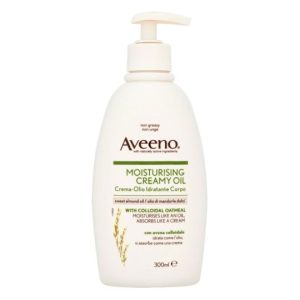Chemist.net Cookie Policy : We use cookies to enhance your user experience. To find out more please view our cookie policy
Dive into Comfort: 7 Tips for Preventing Dry Skin When Swimming

Whether you're an adult or a child, few of us can resist a splash about in the pool or sea while we're on holiday, but spending time in chlorinated or saltwater pools can lead to one common annoyance: dry skin. Dry skin can be uncomfortable and even bothersome, but fear not – with the right precautions and care, you can enjoy your aquatic adventures while keeping your skin supple and hydrated. In this blog, we'll explore seven essential tips for preventing dry skin when swimming.
Pre-Swim Hydration
Proper hydration begins even before you enter the water. Drink plenty of water before and after your swim to ensure your body is well-hydrated. Well-hydrated skin is more resilient and less likely to dry out from prolonged exposure to pool chemicals or saltwater.
Shower Before Swimming
Take a quick shower before diving into the pool. This pre-swim rinse helps to saturate your skin with clean water, creating a barrier that can reduce the absorption of chlorine or saltwater. Additionally, wet skin is less likely to absorb as much pool water, which can further prevent dryness.
Apply a Barrier Cream
Before heading to the pool, consider applying a thin layer of petroleum jelly or a specially formulated barrier cream to your skin. These products create a protective barrier that helps shield your skin from the drying effects of chlorine and saltwater.
Opt for a Swim Cap and Goggles
Wearing a swim cap and goggles can serve as a double-layer of defence against dry skin. A swim cap prevents chlorinated water from directly contacting your scalp and hair, while goggles protect the delicate skin around your eyes. This approach minimizes skin exposure and potential irritation.
Rinse Immediately After Swimming
After your swim, don't linger in your wet swimsuit. Rinse off as soon as possible using fresh water. This quick rinse helps remove residual chlorine or saltwater from your skin's surface, reducing the likelihood of irritation and dryness.
Use a Gentle Cleanser
When showering after swimming, opt for a mild, moisturising cleanser. Harsh soaps can strip your skin of its natural oils, exacerbating dryness. Look for products containing hydrating ingredients like glycerin or hyaluronic acid to replenish moisture.
Moisturise Liberally
Post-swim moisturising is essential for restoring your skin's hydration balance. Choose a high-quality, fragrance-free moisturizer and apply it generously to damp skin. Moisturising within a few minutes of showering helps lock in moisture and create a protective barrier against dryness.
Bonus Tip: DIY Remedies
For an extra boost of hydration, consider natural remedies to soothe and moisturise your skin. Aloe vera gel, coconut oil, and oatmeal baths are just a few examples of DIY options that can provide relief and restore moisture to your skin.
Conclusion: Swimming should be a joyful experience that leaves you feeling refreshed and rejuvenated, not with dry and irritated skin. By following these seven tips, you can minimise the effects of chlorine and saltwater exposure, ensuring your skin stays supple and healthy. Remember, a little pre-swim preparation and post-swim care can go a long way in preventing dry skin and allowing you to fully enjoy your time in the water. So, dive into comfort and make a splash without worrying about dry skin!
Shop now for dry skin relief products

